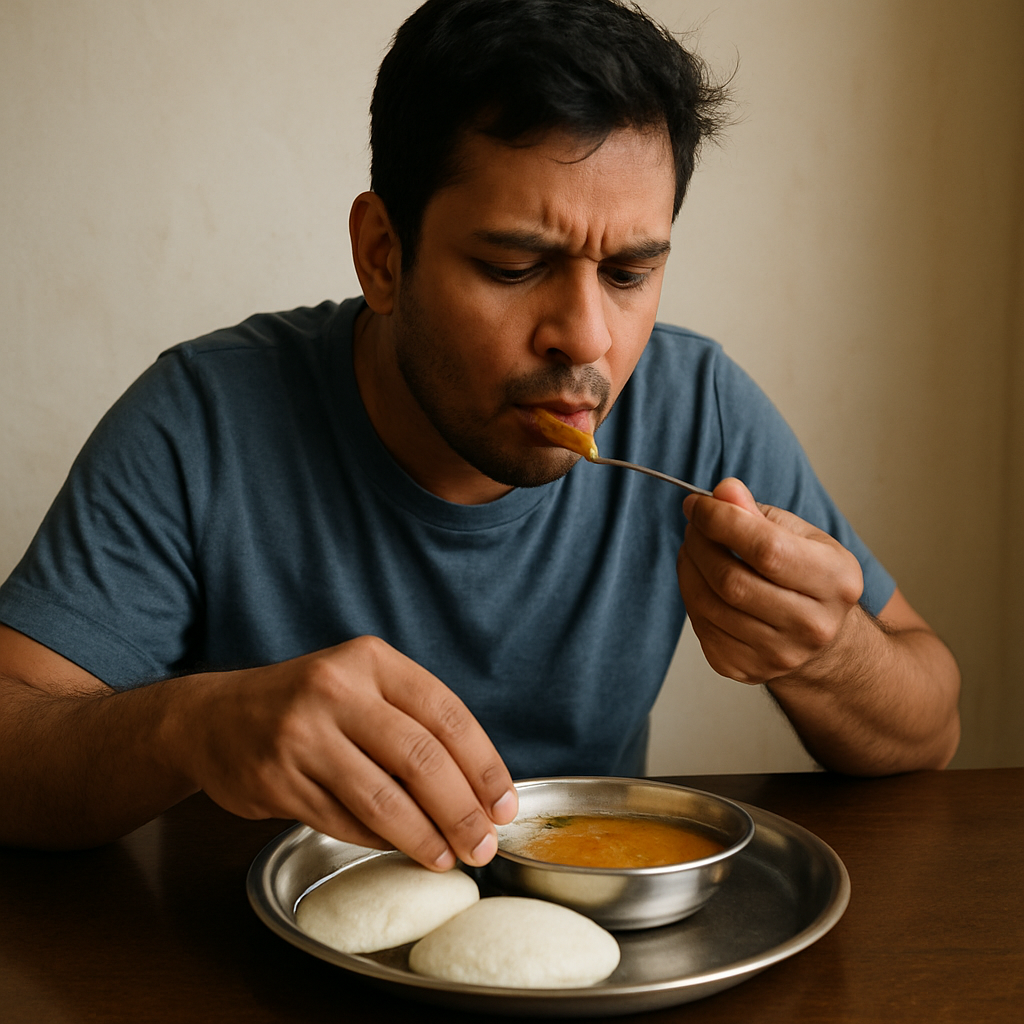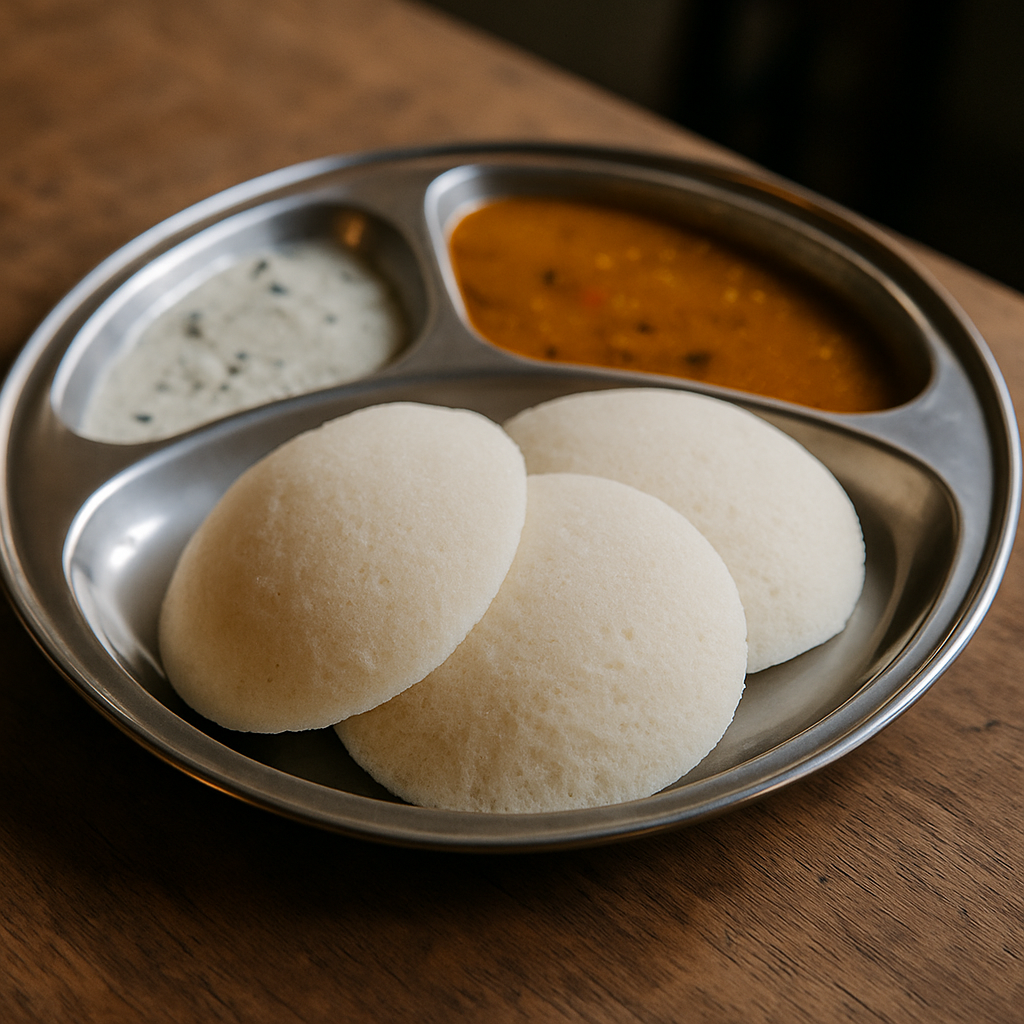Ask Ayurvedic doctor a question and get a consultation online on the problem of your concern in a free or paid mode. More than 2,000 experienced doctors work and wait for your questions on our site and help users to solve their health problems every day.
Can We Eat Idli in Loose Motion?

When you’re struggling with loose motion, also known as diarrhea, the first thing that usually comes to mind is food — or rather, what you should and shouldn’t eat. Can we eat idli in loose motion? Is idli good for loose motion, or can it make the condition worse? These questions are common because food plays a big role in recovery. Idli, being soft, steamed, and easy to digest, often comes up as a recommended option. But is idli during loose motion really a good idea, or are there hidden factors we overlook? Let’s break it down step by step so you know whether idli for loose motion is safe and beneficial, or if you should avoid it in some situations.
What Is Loose Motion and Its Dietary Importance
Loose motion simply means frequent watery stools, and it can drain your body fast. You lose fluids, electrolytes, and energy — sometimes in just a matter of hours. That’s why doctors usually stress not only hydration but also careful eating.
Why Food Matters During Diarrhea
When your stomach is upset, your digestive system is already weak. Eating heavy, oily, or spicy foods only worsens things, leading to cramps or prolonged episodes. On the other hand, light, simple meals help calm the stomach and give your body a chance to absorb nutrients without overworking digestion.
Common Mistakes in Diet During Loose Motion
Many people make the mistake of skipping food completely, thinking it will “rest the stomach.” But this often makes you weaker. Another mistake? Eating raw vegetables, fried snacks, or milk products too soon. These irritate the gut lining and slow down recovery.

Is Idli Good for Loose Motion?
This is the big question. The short answer is: yes, in most cases, idli can be a very safe food. But the long answer depends on how it’s made and what’s eaten with it.
Nutritional Value of Idli
Idli is made from fermented rice and urad dal batter. It is steamed, not fried, which makes it light and fluffy. It provides some protein, carbs, and a little fat. Because it is soft and bland, it doesn’t irritate the stomach much. That’s why many people across India eat idli when sick, whether with fever, stomach upset, or even after surgery.
Why Idli Is Often Recommended
Doctors and nutritionists often suggest idli during loose motion because it:
-
Is easy to digest compared to spicy curries or fried items.
-
Provides energy without being too heavy.
-
Can be eaten plain, without chutneys or sambar, reducing the risk of further irritation.
But hold on — just because it’s recommended doesn’t mean it works for everyone. Sometimes, even idli can backfire.
When to Avoid Idli During Loose Motion
Yes, you read that right. While idli is generally safe, there are certain conditions where it may not suit you.
Ingredients That Might Aggravate Symptoms
The batter for idli contains urad dal, which in some cases can cause gas or bloating. If your stomach is already sensitive, this might add discomfort. Also, reheated or stale idlis are a big no-no — they’re harder to digest and can worsen diarrhea.
How It’s Prepared Matters
The method of cooking matters a lot. Fresh, soft idlis are safe, but pairing them with coconut chutney (which has raw coconut, chilies, and sometimes garlic) can trigger more motion. Similarly, spicy sambar is not a good companion. Stick to plain idlis or maybe pair with a little curd if your stomach can handle dairy.

Best Way to Eat Idli for Better Digestion
Even though idli is considered safe during loose motion, the way you eat it really makes a difference.
With or Without Chutney?
This is where most people go wrong. Many can’t imagine idli without chutney or sambar, but during diarrhea, these side dishes can do more harm than good. Coconut chutney, for example, contains raw coconut and spices that are heavy on the stomach. Sambar is usually spicy, tangy, and loaded with tamarind — again, not ideal for a sensitive tummy.
So, is it okay to eat idli during loose motion with chutney? Not really. The safest bet is to stick with plain idlis, maybe with a tiny spoon of plain curd or a dash of salt. If you absolutely crave flavor, you could try a very mild vegetable stew made with minimal spices.
Portion Size and Frequency
Another mistake people make is eating too much at once. Idli is light, but that doesn’t mean you should overload your stomach. Start with one or two pieces, chew well, and see how your body reacts. If you feel comfortable, you can eat again after 2–3 hours. Small, frequent meals help more than eating a big plate at once.
Other Ayurvedic Diet Tips for Loose Motion
Idli for loose motion can help, but Ayurveda and traditional home remedies also offer valuable guidance. According to Ayurvedic principles, balancing the “agni” or digestive fire is key during diarrhea.
-
Rice gruel (kanji): A watery rice porridge that hydrates and soothes the gut.
-
Buttermilk with roasted cumin: Light, cooling, and helps restore gut bacteria.
-
Bananas: Provide potassium and bulk up the stool.
-
Fenugreek (methi) seeds: Soaked overnight and eaten in the morning, they may reduce loose stools.
These remedies are time-tested and can complement idli in your recovery diet. However, moderation is important — overdoing any remedy can upset the balance again.
Conclusion
So, can idli be eaten in loose motion? The answer is yes — but with conditions. Fresh, plain idlis (without chutney or sambar) are usually gentle on the stomach, provide energy, and are easy to digest. Still, everyone’s body is different. If you notice idli causing discomfort, try alternatives like rice gruel, bananas, or buttermilk until your stomach settles.
Loose motion can drain your body quickly, so focus on hydration, rest, and eating simple foods. Next time you wonder is idli good for loose motion, remember the key is in preparation, portion size, and listening to your body.
FAQs
What not to eat during loose motion?
Avoid oily, fried, spicy foods, raw vegetables, milk products (for some people), and caffeinated drinks.
Can idli cause stomach pain?
Usually no, but if you are sensitive to urad dal or eat stale idlis, it might trigger bloating or mild pain.
Will idli digest easily?
Yes, idli is steamed and soft, making it one of the easiest foods to digest during loose motion — especially when eaten plain.

